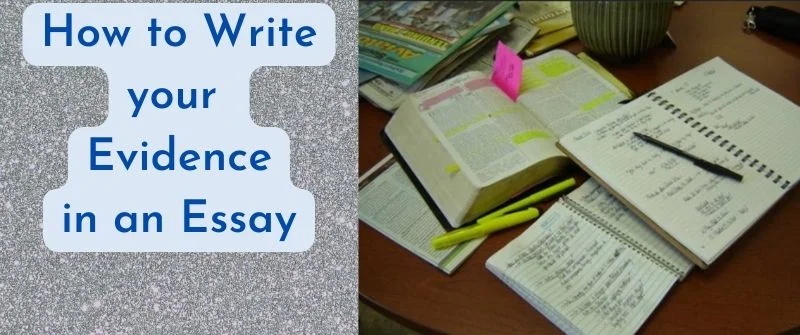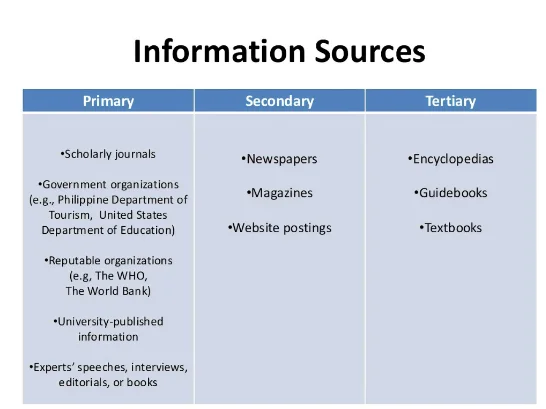How to Write Evidence in Essays or cite argumentative claims

An academic essay is a detailed type of writing that aims at developing a student’s idea through the use of analysis and evidence. You will likely encounter different types of academic essays in your degree course or PhD voyage.
They range from argumentative, descriptive, and persuasive to narrative essays written in the first person.
The level of education defines the length and content of your writing. Other factors, such as the subject of study and requirements, of course, can also determine the essay you will write. At university levels, students usually write argumentative essays.
All types of essay writing involve the stages of preparation, writing then the revision part.
In preparation, a student will choose the topic to write and come up with a good outline. The student’s argument is set out in the essay introduction. With credible evidence, nurture it clearly, then do the winding in the conclusion.
The revision part is very critical to avoid presenting an essay that is full of spelling and grammar issues.
What Is Evidence in an Essay

Essays and research papers need credible and stronger evidence for the purposes of supporting all claims made. You cannot overlook the significance of evidence.
An essay that does not have strong evidence appears weak and uninformed.
In essence, evidence offers integrity to all arguments and claims made in the essay. If you present the foundation of your essay improperly, the entire essay will not move your professor.
Readers of your essay do not want to believe statements made without attached evidence that is substantial and credible.
For your evidence to be considered strong, it must be extracted from a trustworthy source. Also, ensure that you collect the evidence from multiple sources.
You create a good essay when the evidence is specific and not general. In addition, it must be relevant to the subject of discussion in the paper so that your essay has a consistent flow.
Needless to say, it must be evidence that is not outdated and presented to support your argument. For an essay argument to appear strong in your essay, explain all sections of the evidence.
A writer must outline to the audience how the evidence is connected to the respective claims.
Strong evidence in your academic essay should include studies, statistics, good examples, and quotes that a writer can obtain from updated articles or reports.

A good source can be:
- Academic journals
- School Library
- Verified news reports
- Books
There are also reliable internet websites that can yield good evidence, but you ought to verify if the information is true.
How to Write Evidence in an Essay
1. Evidence set up
Writing your evidence starts with its introduction, where you will create an idea at the beginning of the first paragraph of your essay. Afterward, you bring in your evidence to support the idea you introduced.
Analyze the evidence properly so that your audience will understand. A maximum of two sentences is enough for you to set up your evidence because it has to be precise and summarized. Below are more detailed steps on how to write the evidence:
- Bring in a declaration explaining to the reader what you make of the main idea. Bear in mind that this declaration or argument to bring in ought to bond with the evidence.
- Another option is to focus on a specific idea related to your essay and bring in the evidence. This is considered a less direct methodology for introducing your evidence and is more applicable in explorative types of essays and not argumentative.
2. Putting in the Evidence
To put in the evidence, start with an initial item and ensure it fits effortlessly into the text. This important item should be placed at the start of the phrase that you are using as evidence.
With a good argument, bring in the evidence. However, you can also opt to use your own claim in introducing the evidence so that it appears more emphatic. For a smooth and more natural flow, place the evidence of your essay in a short sentence.
Ensure to write the name of the author and the reference title especially if you are introducing the evidence for the first time in the essay.
This means that the next time you present your evidence there will be no need to mention the title again.
When it comes to the use of direct quotes in your evidence, make use of quotation marks. This helps to indicate that these are not another person’s words.
3. Evidence Citation
As usual, evidence needs proper citation. Place the citation in the comments appearing at the end of your evidence. A good citation consists of the number of the page where you can trace the quote in the primary source.

The last name of the author should also be included. Citations need to include charts, all quotes, graphs and relevant resources.
The inclusion of citation is very important as it portrays the author as a writer who is not only responsible but also able to support his stated points with actual evidence.
In addition to this, select the right citation style too use. MLA, APA and Harvard referencing are among the leading styles you can use to cite. However, consult your professor if you are not sure in order to get further clarification.
It is important to know that evidence needs to be analyzed one piece at a time for the readers to understand them seamlessly. Therefore, analyze the piece of evidence fully before embarking on the next so that they do not appear sloppy.
Finally, analyze your evidence with detailed discussion on how the different pieces of evidence support the arguments.
How to Explain Your Evidence
The stage of explaining different pieces of evidence can be an uphill task. Give this explanation as soon as you state the evidence. The explanation must be thorough with the main idea clearly analyzed to avoid confusing the audience.
The description you give should include the means through which your statements are supported by this evidence. Let the reader comprehend the relationship between the essay’s main idea and the evidence you are presenting.
If there is any confusion in the quotes you have included, give an in-depth clarification to ensure the readers will have a good understanding.
The Importance of Evidence in Essay Writing
An essay written without good evidence can be compared to a building built without proper foundation. Evidence makes your essay credible by backing up and supporting all arguments made.
Essays backed up with strong evidence will have authority and give the audience easy time in evaluating the assertions. Without evidence, an author will not be able to substantiate any claims made in the essay.
As a good researcher, always go for strong evidence that comes from credible sources. If the evidence you have does not emanate from trustworthy sources, it cannot be considered as strong.
There is need for a thorough scrutiny, if you are using internet websites or social media, to get accurate and reliable source.
Fortunately, you can make use of available search engines or academic databases to help you in screening sources so that you settle for those that are trustworthy. This also helps you to compare the various sources and know if they are all conveying same information and statistics.




